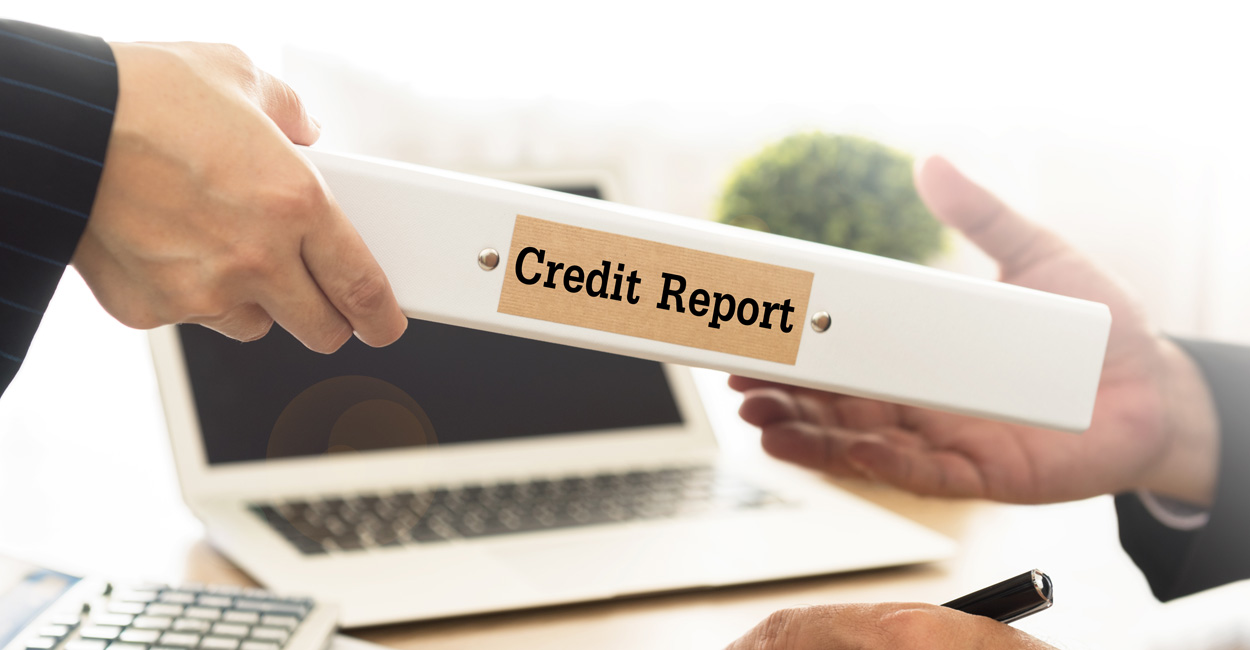

Finance
What Does A Credit Bureau Do?
Published: March 3, 2024
Learn how credit bureaus impact your finances and credit score. Understand the role of credit bureaus in managing your financial reputation.
(Many of the links in this article redirect to a specific reviewed product. Your purchase of these products through affiliate links helps to generate commission for LiveWell, at no extra cost. Learn more)
Table of Contents
Introduction
Understanding the Role of Credit Bureaus in Financial Systems
Credit bureaus play a pivotal role in the world of finance, influencing the lives of millions of individuals and the operations of countless businesses. These entities are often shrouded in mystery, with many people unaware of their inner workings and the impact they have on their financial well-being. In this article, we will delve into the functions, operations, and significance of credit bureaus, shedding light on their crucial role in the modern economy.
Credit bureaus are instrumental in determining an individual's creditworthiness, affecting their ability to secure loans, mortgages, and other forms of credit. Understanding the mechanisms behind credit bureaus is essential for anyone seeking to navigate the complex web of financial transactions and obligations. By exploring the inner workings of these entities, we can gain a deeper insight into the factors that shape our financial opportunities and limitations.
Throughout this article, we will unravel the mystery surrounding credit bureaus, demystifying their operations and illustrating their profound influence on the financial landscape. From their fundamental purpose to the intricate processes that underpin their functionality, we will explore the multifaceted world of credit bureaus, shedding light on their significance in the realm of personal and commercial finance.
What is a Credit Bureau?
A credit bureau is a specialized agency that collects and maintains information on individuals’ credit and payment history. These agencies gather data from various sources, including lenders, creditors, and public records, to compile comprehensive credit reports for individuals. The primary function of a credit bureau is to assess and analyze an individual’s creditworthiness based on their financial behavior and history.
These agencies serve as repositories of financial information, storing details about individuals’ borrowing and repayment activities. The data collected by credit bureaus is utilized to generate credit reports and credit scores, which are crucial factors in determining an individual’s eligibility for credit and the terms and conditions of such credit. By providing lenders and creditors with insights into an individual’s financial responsibility and reliability, credit bureaus facilitate informed decision-making in the extension of credit.
Credit bureaus operate as independent entities, distinct from lenders and creditors, and their primary objective is to provide accurate and objective assessments of individuals’ credit profiles. The information maintained by credit bureaus encompasses various aspects of an individual’s financial history, including their credit accounts, payment patterns, outstanding debts, and public records such as bankruptcies and liens.
Furthermore, credit bureaus play a crucial role in safeguarding the integrity of the credit system by ensuring the accuracy and fairness of the information they report. They adhere to stringent guidelines and regulations to maintain the confidentiality and accuracy of the data they handle, promoting transparency and accountability in the credit reporting process.
Overall, credit bureaus serve as vital pillars of the financial infrastructure, providing essential insights into individuals’ creditworthiness and enabling lenders to make informed decisions regarding credit extension. By understanding the nature and functions of credit bureaus, individuals can gain valuable insights into the factors that shape their financial opportunities and access to credit.
Functions of a Credit Bureau
Credit bureaus perform a range of critical functions that are integral to the smooth operation of the credit ecosystem and the assessment of individuals’ creditworthiness. These functions encompass the collection, analysis, and dissemination of financial data, ultimately serving to provide comprehensive insights into individuals’ credit profiles. The following are key functions of credit bureaus:
- Data Collection: Credit bureaus gather financial information from a variety of sources, including lenders, creditors, and public records. This data encompasses individuals’ credit accounts, payment history, outstanding debts, and public records such as bankruptcies and liens.
- Credit Reporting: Upon collecting financial data, credit bureaus compile comprehensive credit reports for individuals. These reports provide a detailed overview of an individual’s credit history, enabling lenders and creditors to assess their creditworthiness.
- Credit Scoring: Credit bureaus utilize the data they collect to generate credit scores, which are numerical representations of individuals’ creditworthiness. Credit scores play a pivotal role in determining individuals’ eligibility for credit and the terms and conditions of such credit.
- Risk Assessment: By analyzing individuals’ financial behavior and credit history, credit bureaus assist lenders and creditors in evaluating the level of risk associated with extending credit to a particular individual.
- Identity Verification: Credit bureaus play a crucial role in verifying individuals’ identities and preventing identity theft by maintaining accurate and up-to-date records of individuals’ financial activities.
- Regulatory Compliance: Credit bureaus adhere to strict regulatory guidelines and standards to ensure the accuracy, fairness, and confidentiality of the information they handle. Compliance with regulations promotes transparency and accountability in the credit reporting process.
Overall, the functions of credit bureaus are geared toward providing reliable and objective assessments of individuals’ creditworthiness, enabling lenders and creditors to make informed decisions regarding credit extension. By fulfilling these functions, credit bureaus contribute to the integrity and efficiency of the credit system, playing a pivotal role in facilitating responsible lending and borrowing practices.
How Does a Credit Bureau Work?
The operations of a credit bureau are multifaceted, involving intricate processes that culminate in the generation of comprehensive credit reports and credit scores for individuals. The following overview elucidates the fundamental workings of a credit bureau:
- Data Collection: Credit bureaus collect financial information from various sources, including lenders, creditors, and public records. This data encompasses individuals’ credit accounts, payment history, outstanding debts, and public records such as bankruptcies and liens.
- Data Maintenance: Upon gathering financial data, credit bureaus maintain detailed records of individuals’ credit histories, ensuring the accuracy and completeness of the information they store.
- Credit Reporting: Using the data collected, credit bureaus compile comprehensive credit reports for individuals. These reports provide a comprehensive overview of an individual’s credit history, encompassing details such as credit accounts, payment patterns, outstanding debts, and public records.
- Credit Scoring: Credit bureaus utilize sophisticated algorithms to analyze individuals’ credit data and generate credit scores. These scores serve as numerical representations of individuals’ creditworthiness, aiding lenders and creditors in assessing the risk associated with extending credit to a particular individual.
- Information Dissemination: Credit bureaus disseminate credit reports and credit scores to lenders, creditors, and other authorized entities, enabling them to make informed decisions regarding credit extension.
- Identity Verification: Credit bureaus play a crucial role in verifying individuals’ identities and preventing identity theft by maintaining accurate and up-to-date records of individuals’ financial activities.
- Regulatory Compliance: Credit bureaus adhere to stringent regulatory guidelines and standards to ensure the accuracy, fairness, and confidentiality of the information they handle. Compliance with regulations promotes transparency and accountability in the credit reporting process.
By performing these functions, credit bureaus facilitate the assessment of individuals’ creditworthiness and contribute to the integrity of the credit system. The intricate workings of credit bureaus underscore their pivotal role in enabling responsible lending practices and empowering individuals to make informed financial decisions.
Importance of Credit Bureaus
Credit bureaus play a pivotal role in the modern financial landscape, wielding significant influence on individuals’ access to credit and the functioning of the credit system as a whole. Their importance stems from the following key aspects:
- Facilitating Informed Lending Decisions: Credit bureaus provide lenders and creditors with comprehensive insights into individuals’ credit histories and financial behaviors, enabling informed decisions regarding credit extension. By assessing an individual’s creditworthiness through credit reports and credit scores, lenders can gauge the level of risk associated with extending credit, fostering responsible lending practices.
- Empowering Borrowers: Credit bureaus empower individuals by providing them with a clear understanding of their credit standing. Access to credit reports and credit scores allows individuals to assess their financial health, identify areas for improvement, and take proactive steps to enhance their creditworthiness.
- Promoting Financial Inclusion: Through their assessment of individuals’ creditworthiness, credit bureaus contribute to the promotion of financial inclusion by enabling individuals to access credit based on their demonstrated financial responsibility. This fosters economic participation and empowerment, particularly for individuals with limited credit histories.
- Preventing Fraud and Identity Theft: Credit bureaus play a crucial role in verifying individuals’ identities and detecting fraudulent activities. By maintaining accurate and up-to-date records of individuals’ financial activities, credit bureaus help prevent and mitigate the impact of identity theft and financial fraud.
- Supporting Regulatory Compliance: Credit bureaus adhere to stringent regulatory standards, promoting transparency and fairness in the credit reporting process. Their compliance with regulations ensures the accuracy and confidentiality of the information they handle, contributing to the integrity of the credit system.
- Enabling Economic Growth: By facilitating the extension of credit to creditworthy individuals and businesses, credit bureaus contribute to economic growth and vitality. Access to credit fuels consumption, investment, and entrepreneurship, driving economic progress and prosperity.
Overall, the importance of credit bureaus cannot be overstated, as they serve as linchpins of the financial system, providing essential insights into individuals’ creditworthiness and enabling responsible lending and borrowing practices. Their impact reverberates throughout the economy, shaping financial opportunities and fostering a climate of transparency and accountability in the realm of credit.
Conclusion
Credit bureaus occupy a central position in the intricate web of financial transactions, wielding significant influence on individuals’ access to credit and the overall functioning of the credit system. Their multifaceted functions, encompassing data collection, credit reporting, credit scoring, and regulatory compliance, underscore their pivotal role in shaping financial opportunities and fostering responsible lending practices. By providing lenders and creditors with comprehensive insights into individuals’ credit histories and financial behaviors, credit bureaus enable informed decision-making in the extension of credit, promoting transparency and fairness in the credit ecosystem.
Furthermore, credit bureaus empower individuals by offering them a clear view of their credit standing, enabling them to take proactive steps to enhance their creditworthiness. This empowerment fosters economic participation and financial inclusion, contributing to the vibrancy of the economy. Additionally, credit bureaus play a crucial role in preventing fraud and identity theft, safeguarding the integrity of individuals’ financial identities and activities.
It is evident that credit bureaus are not merely repositories of financial data; they are vital enablers of economic growth and prosperity. By facilitating the extension of credit to creditworthy individuals and businesses, credit bureaus contribute to the vitality of the economy, fueling consumption, investment, and entrepreneurship. Their adherence to stringent regulatory standards further promotes the integrity and fairness of the credit reporting process, underpinning the trust and reliability of the credit system.
In conclusion, credit bureaus serve as linchpins of the financial system, providing essential insights into individuals’ creditworthiness and enabling responsible lending and borrowing practices. Their impact reverberates throughout the economy, shaping financial opportunities and fostering a climate of transparency and accountability in the realm of credit. Understanding the functions and significance of credit bureaus is essential for anyone seeking to navigate the complex terrain of financial transactions and obligations, underscoring the profound influence of these entities on the lives of individuals and the operations of businesses.














